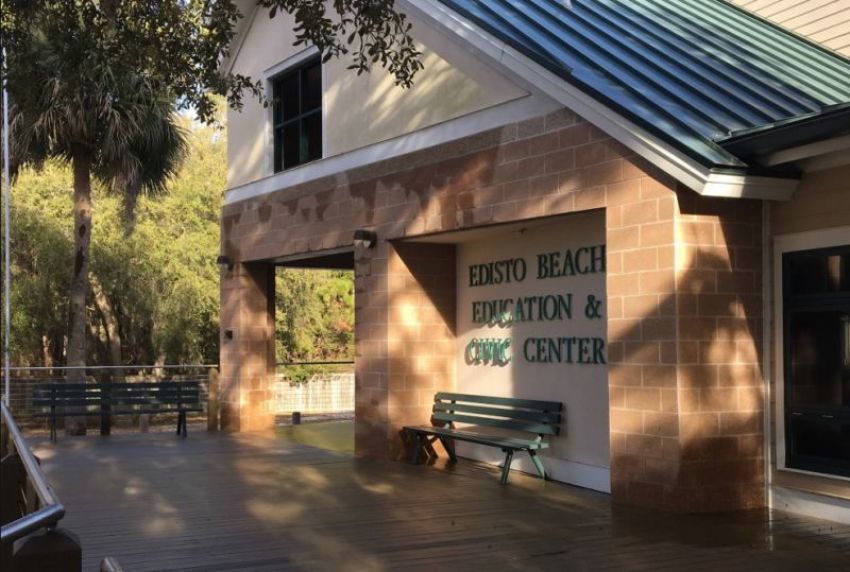Town lifts ban on worship services in civic center, will pay $53K to settle church lawsuit

The town of Edisto Beach, South Carolina, has lifted a ban on churches holding worship services in the community civic center amid pressure from a federal lawsuit filed on behalf of Redeemer Fellowship of Edisto Island.
The congregation of about 40 people and the municipality filed an agreement Monday to bring an end to a lawsuit filed last year after the Edisto Beach City Council unanimously passed in May a ban on renting out the Edisto Beach Civic Center for “religious worship services.”
“Defendant Town of Edisto Beach covenants that it will treat ‘religious worship services’ on equal terms with other community groups and uses in its Civic Center policies, including its Facility Use Guidelines,” the agreement reads.
The agreement explains that the town adopted a resolution lifting the ban on “religious worship services” in the civic center last December and vowed that it will not reinstate a prohibition on “religious worship services” at the civic center.
As part of the agreement, the town has to pay Redeemer Fellowship $3,112.85 in compensatory damages, while paying the church’s legal team with the conservative nonprofit Alliance Defending Freedom $50,000 in legal costs.
The church rented out the civic center twice before their application to rent a third time was rejected by the town council. The council amended its facility use rules in 2018 over concerns about separation of church and state.
As a result, Redeemer Fellowship was forced to find other locations to hold worship services.
“We commend Edisto Beach for lifting its ban, which was inconsistent with the town’s own statement that it welcomes ‘civic, political, business, social groups and others’ to use its civic center,” ADF Legal Counsel Christiana Holcomb said in a statement.
“Its previous policy that singled out one form of expression — worship — as inferior to other forms of speech was clearly unconstitutional. Redeemer Fellowship and its members have invested in the community for years, and we are pleased that the church will now receive fair treatment and equal access to the civic center.”
ADF argued that a rule preventing the civic center from being rented out for religious worship services violates religious freedom rights under the First Amendment of the U.S. Constitution and also violates the Equal Protection and Due Process Clauses of the Fourteenth Amendment.
Additionally, the lawsuit points out that an Episcopal Church has been renting a multipurpose room in the Edisto Beach Civic Center for the last several years and uses the room for office space, vestry meetings, Bible studies and theological training. As well, the civic center regularly hosts events like weddings, Christmas parties and even Baptism celebrations.
Last November, the U.S. Department of Justice filed a statement of interest with the federal court in Charleston supporting ADF’s arguments that the Edisto Beach Civic Center policy violated the Constitution.
Justice Department attorney Robert Sneed argued that the town’s policy “singled out and banned a category of constitutionally protected speech and religious exercise … based solely on its content and viewpoint.”
“This discriminatory ban is impossible to reconcile with [the 1981 ruling of] Widmar v. Vincent, where the Supreme Court struck down on First Amendment grounds a virtually identical ban on ‘religious worship or religious teaching’ in a university’s limited public forum,” the brief argued at the time.
“The town nonetheless attempts to justify its new ban based on ‘concerns’ that permitting religious worship services in the Civic Center on equal terms as other forms of expression might violate ‘the Establishment Clause.’” the brief continues. “But the Supreme Court already rejected that position in Widmar because a policy granting religious groups or speech equal access to a limited public forum does not violate the Establishment Clause.”
ADF has been successful in many of its religious freedom cases in recent years, picking up nine Supreme Court victories in the last seven-plus years. One of those victories was the 2017 case of Trinity Lutheran Church v. Comer. In that case, the Supreme Court ruled that states cannot bar churches from secular aid programs just because they are inherently religious.
“... the exclusion of Trinity Lutheran from a public benefit for which it is otherwise qualified, solely because it is a church, is odious to our Constitution all the same, and cannot stand," wrote Chief Justice Roberts at the time.
Follow Samuel Smith on Twitter: @IamSamSmith
or Facebook: SamuelSmithCP



























